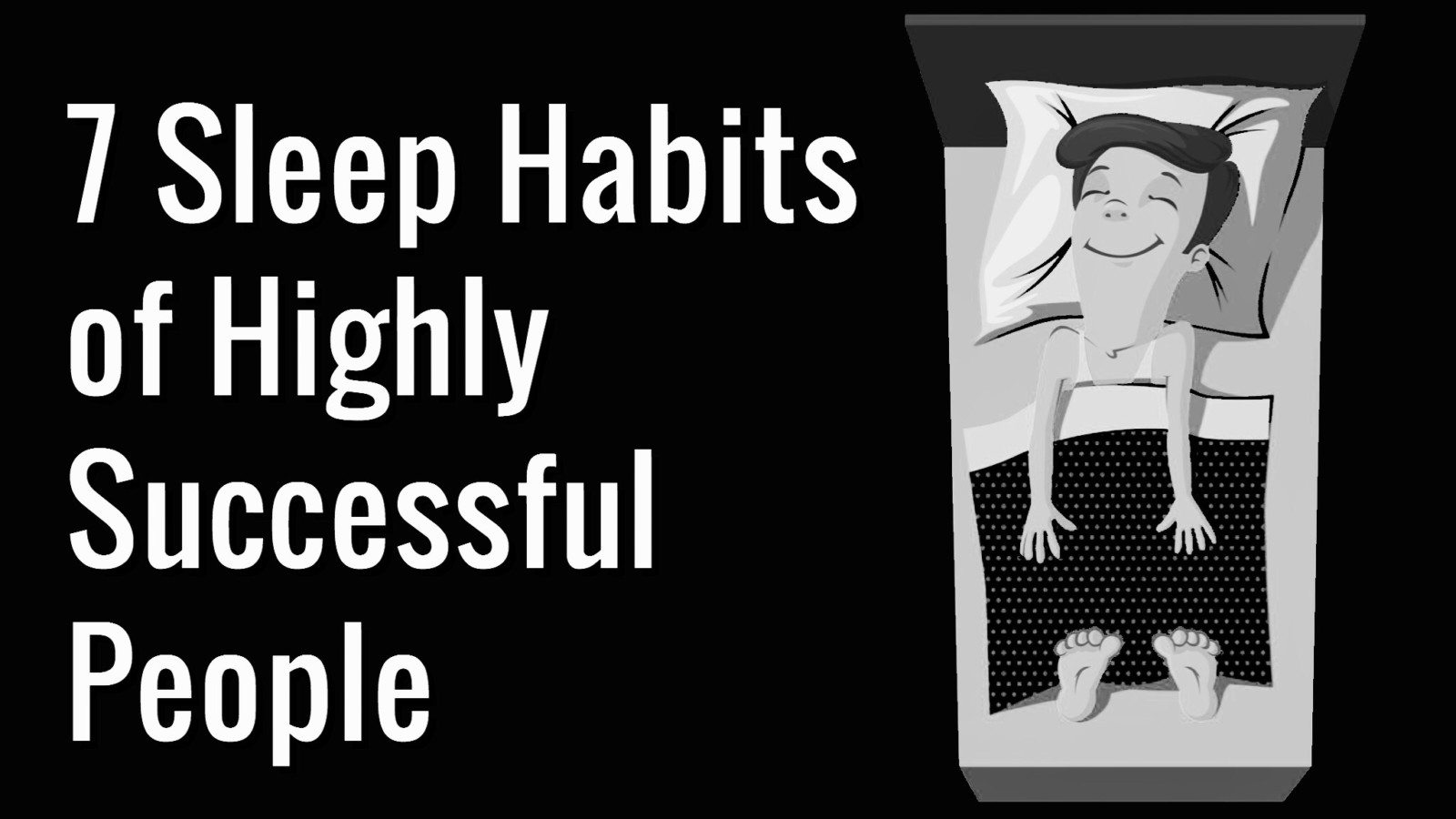Here’s a riddle: What does nearly everyone do a lot, yet can’t seem to get enough of? Okay, so you probably know by the title of this article that the answer is (wait for it…) SLEEP!
It’s a bit generic to simply say “Sleep. It’s good for you!” So, let’s get more specific. In this article, we’re going to discuss the sleep habits of successful people. We’ll wrap up by going over some tips to improve your ‘sleep hygiene’, courtesy of the National Sleep Foundation.
Let’s start off by asking another (non-riddle) question: What does success require? If we were to have a deep discussion about “success principles” we’d be here a while.
So, let’s narrow it down to three things that we should all be able to agree on: energy, thinking, and health. As it turns out, adequate sleep is the most important activity for maintaining the healthy function of all three.
Sleep is important enough to success that companies all over the world now have “nap rooms” for their employees. You may have heard of this little company called Google. Yeah, nap rooms. (Meditation rooms, too!)
“Early to bed, early to rise, makes a man healthy, wealthy, and wise.” ~ Benjamin Franklin
We’re fascinated with how successful people live. Articles have been written about what successful people eat, the books they read, and yes, how they sleep.
While some wildly successful people have erratic sleeping habits, most of them stick to a schedule. Case in point: Ole’ Benny Franklin (quote, above) used to sleep from 10 PM to 5 AM.
HERE ARE 7 OTHER SLEEP HABITS THAT THE VAST MAJORITY OF SUCCESSFUL PEOPLE HAVE IN COMMON:
1. THEY’RE ASLEEP BY 1 AM
According to nine different sources who compiled the sleeping habits of 21 successful people – from Barack Obama to Elon Musk – about 95 percent of them are snoozing by 1 AM. (Winston Churchill apparently didn’t drift off until 3…as in 3 AM!)
2. THEY’RE AWAKE BY 7 AM
According to Home Arena, nine out of every ten successful people are awake by 7. Ellen DeGeneres, the widely-successful comedian and T.V. host, is on her feet at precisely 7. Others, like Pepsi CEO Indra Nooyi, are “up and at ‘em” as early as 4.
3. THEY GET AT LEAST 6 HOURS
Speaking of Ms. Nooyi, she’s one of the few outliers who doesn’t get a minimum of six hours sleep (she registers five). Even Elon Musk, the insanely-driven inventor extraordinaire, hits the hay for at least a half-dozen hours. Musk’s biggest competitor, Amazon CEO Jeff Bezos, gets seven hours of shuteye.
4. THEY’RE EXTREMELY DISCIPLINED
No real surprise here. By most accounts – at least, the ones that are available – successful people approach sleep like they do everything else … with an uncanny amount of self-discipline.
5. THEY HAVE A MORNING ROUTINE
While routines differ widely among the successful, they do have one. The late, great Steve Jobs used to ask himself every morning, “If today was the last day of my life, would I be happy with what I’m about to do today?” Job’s biggest life rival, Mr. Bill Gates, spends an hour on the treadmill each morning without fail.
6. THEY HAVE AN EVENING ROUTINE
Like their morning routines, successful people differ. But they tend to unwind in bed the same way, every time. Arianna Huffington gets rid of the tech; Oprah Winfrey meditates, and Kenneth Chenault plans his to-do’s for the next day.
7. THEY UNDERSTAND THE IMPORTANCE OF SLEEP
Successful people are also exceptionally busy (Google “Elon Musk’s schedule.” Insane.) Highly successful people also take on more responsibilities than many of us can fathom. Some manage billions of investor’s dollars; some keep non-profit’s afloat; some are heads of state. All hectic, demanding, stressful stuff.
The outrageously successful don’t get to where they’re at by being dumb: as these people’s sleeping habits demonstrate, the successful know the importance of shuteye.
PER THE NATIONAL SLEEP FOUNDATION, HERE ARE SOME TIPS AND TRICKS FOR IMPROVING YOUR SLEEP HABITS:
1. Keep the same sleep schedule every day (even on the weekends).
2. Practice a relaxing evening routine every night.
3. Switch off the technology. The blue light emitted from e-devices disrupts the brain’s production of melatonin – our body’s natural sleep chemical.
4. Do some moderate exercise every day.
5. Design a comfortable sleep environment. Your bedroom should be cool – between 60 to 67 degrees. It should also be noise-free with a minimal amount of light.
6. Use a quality mattress and comfortable pillows. (Mattresses have a max life expectancy of about 9 years.)
“We are such stuff that dreams are made on. And our little life is rounded with sleep.” ~ William Shakespeare












